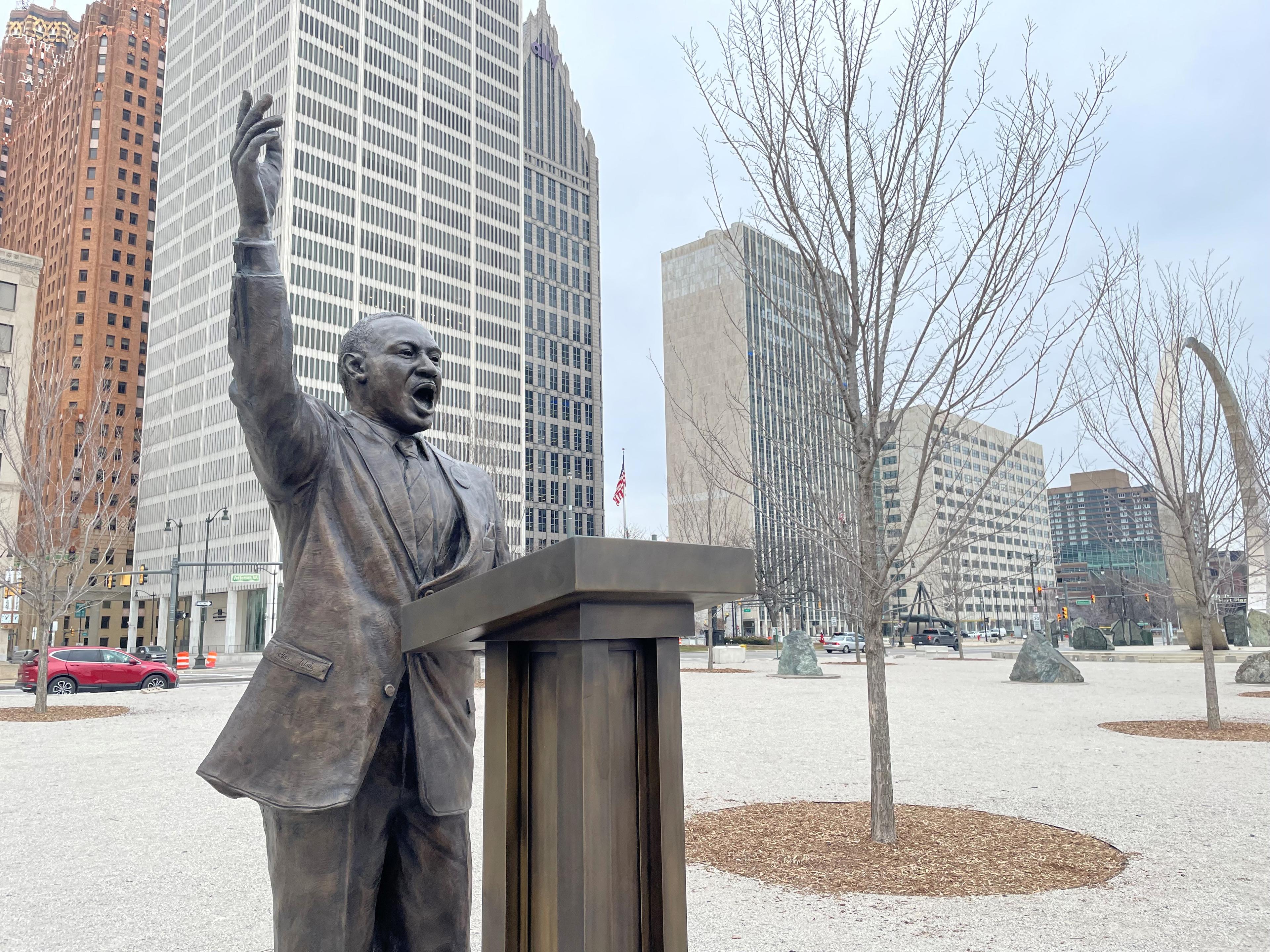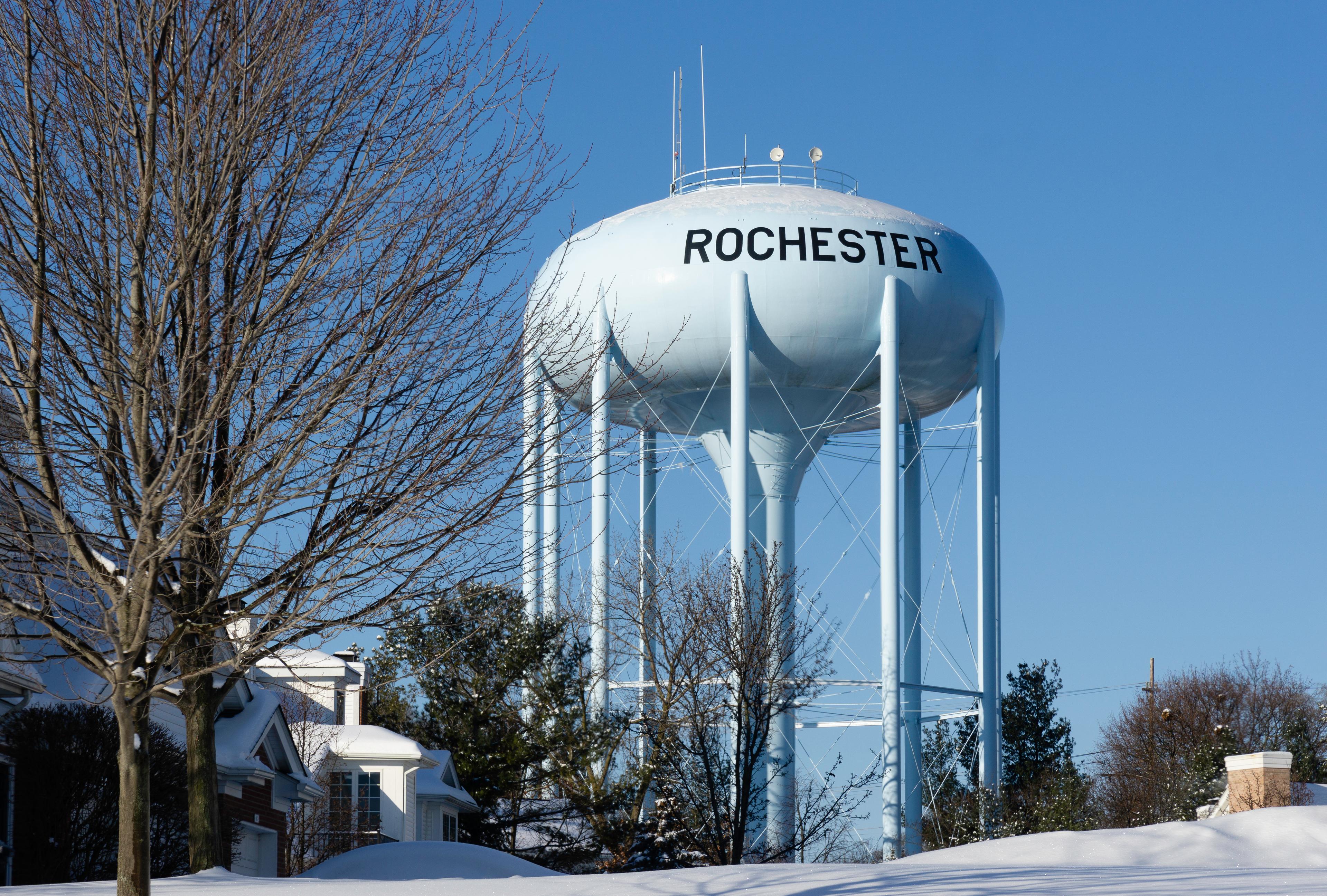Dr. King’s Detroit Legacy: 5 MLK Day Events Planned in Detroit
A Healthier Michigan
| 5 min read

The city of Detroit has a deep connection to the civil rights movement – especially to Dr. Martin Luther King, Jr.
King built a legacy in Detroit, reportedly growing connections with Berry Gordy Jr., founder of Motown Records, and with the United Auto Workers President Walter P. Reuther. Those relationships helped set the stage for some of the biggest moments in the civil rights movement in Detroit.
Here are some of the major ways King influenced the movement in the Motor City, according to the Detroit Historical Society.
Preview of 'I Have a Dream'
On June 23, 1963, more than 125,000 people gathered with King for the Walk to Freedom on Woodward Avenue in Detroit. It was considered the largest civil rights march to date at the time. The march was organized by the Detroit Council for Human Rights – led by the Reverend C.L. Franklin, father of Aretha Franklin.
Later that evening, King delivered an early version of his “I Have a Dream” speech first in Detroit at Cobo Hall, now Huntington Place, before giving his historic address in August 1963 at the Lincoln Memorial in Washington, D.C.
Supporting protestors in Selma
In 1965, organized protests by civil rights leaders in Alabama confronted the lack of voting rights for Black Americans. The first march from Selma to Montgomery on March 7, 1965, was peaceful until protestors encountered police on the Edmund Pettus Bridge – where law enforcement beat and injured protestors, including John Lewis. Dr. King quickly organized a second march – and demonstrations supporting the protestors and their cause joined in support in cities across the country – including Detroit.
Thousands marched in Detroit on March 9, 1965, in support of the Selma protests. It was the same day King led the symbolic march to the Pettus Bridge in Alabama. Here in Detroit, civil rights leaders and activists marched along Woodward Avenue along with Michigan Governor George Romney and Detroit Mayor Jerome Cavanaugh.
Rallying for equality
Three years after leading the Walk to Freedom in Detroit, King returned to speak at the “We Rally for Freedom” event at Cobo Hall on June 19, 1966.
An event program in the archive collections of the Detroit Historical Society features signatures from Dr. King, United Auto Workers’ President Reuther and Michigan Governor G. Mennen Williams. The main illustration on the cover is a drawing of the first African American student to be admitted to the University of Mississippi, which was a segregated institution at the time.
A statue of Dr. Martin Luther King, Jr. is located in Hart Plaza in downtown Detroit.
Honoring King’s legacy
A large aluminum bust of Dr. King sits in the Martin Luther King Jr. Memorial Park on the corner of West Grand Boulevard and Rosa Parks Boulevard in Detroit near the Motown Museum. It was installed in 1981.
In June 2023, hundreds of people gathered to mark the 60th anniversary of the Walk to Freedom in Detroit. Some of the people in attendance had participated in the original walk with Dr. King. After the walk ended, a new MLK statue was unveiled in Hart Plaza in downtown Detroit.
5 Martin Luther King, Jr. Day Events in 2026
To celebrate the legacy of Dr. King, check out one of these events across the state of Michigan:
Detroit’s 22nd Annual MLK Day Rally and March
Greater Detroit celebrates the life and legacy of Dr. Martin Luther King Jr. each year through an Annual Rally & Freedom March for truth, freedom, justice, nonviolence and compassionate outreach for those in need and by calling for attendees to enact change in their personal lives.
When: 12 p.m. on Monday, Jan. 19.
Where: St. Matthew’s & St. Joseph’s Episcopal Church, 8850 Woodward Ave. in Detroit.
University of Michigan’s Rev. Dr. Martin Luther King, Jr. Symposium
The theme of the 40th annual MLK Symposium at UM is “Unbowed and Unbroken: The Enduring Struggle for Justice.” The keynote lecture from Donzaleigh Abernathy and Derrick Johnson is from 10 to 11:30 a.m. on Martin Luther King, Jr. day. A livestream of the event will play on the event’s webpage.
When: 10 a.m. on Jan. 19.
Where: Hill Auditorium, 825 N. University Ave., Ann Arbor.
Eastern Michigan University’s MLK Week of Service
EMU’s MLK celebrations are open to faculty, staff, students, alumni and local community members. This year's week-long event includes a ceremonial wreath laying and "March to Freedom" at Martin Luther King Plaza, an MLK President’s Luncheon featuring Karine Jean-Pierre, former White House Press Secretary and senior advisor for President Biden and much more. Click here to buy tickets for the luncheon.
When: Jan. 19 through Friday, Jan. 23.
Where: Eastern Michigan University in Ypsilanti.
MLK Day 26th Annual Corporate Breakfast
The Urban League of Western Michigan hosts an annual corporate breakfast on Martin Luther King, Jr. Day for “a morning filled with purpose, unity, and the indomitable spirit of progress.” There are speakers and a networking event before the breakfast, and a community engagement opportunity after. Purchase tickets at this link.
When: 7 a.m. on Jan. 19.
Where: DeVos Place, 303 Monroe Ave NW, Grand Rapids.
46th Annual Dr. Martin Luther King, Jr., Celebration at Michigan State University
Since 1980, Michigan State University has celebrated Martin Luther King, Jr. Day following a graduate student effort, which resulted in the celebration as well as a bust of Dr. King and a tree being planted on campus. Each year, community involvement opportunities, activities and speakers are involved. Click here for a full list of the 2026 events planned for the 46th annual celebration.
When: Thursday, Jan. 15 to Monday, Jan. 26.
Where: Michigan State University in Lansing.
Related reading:





